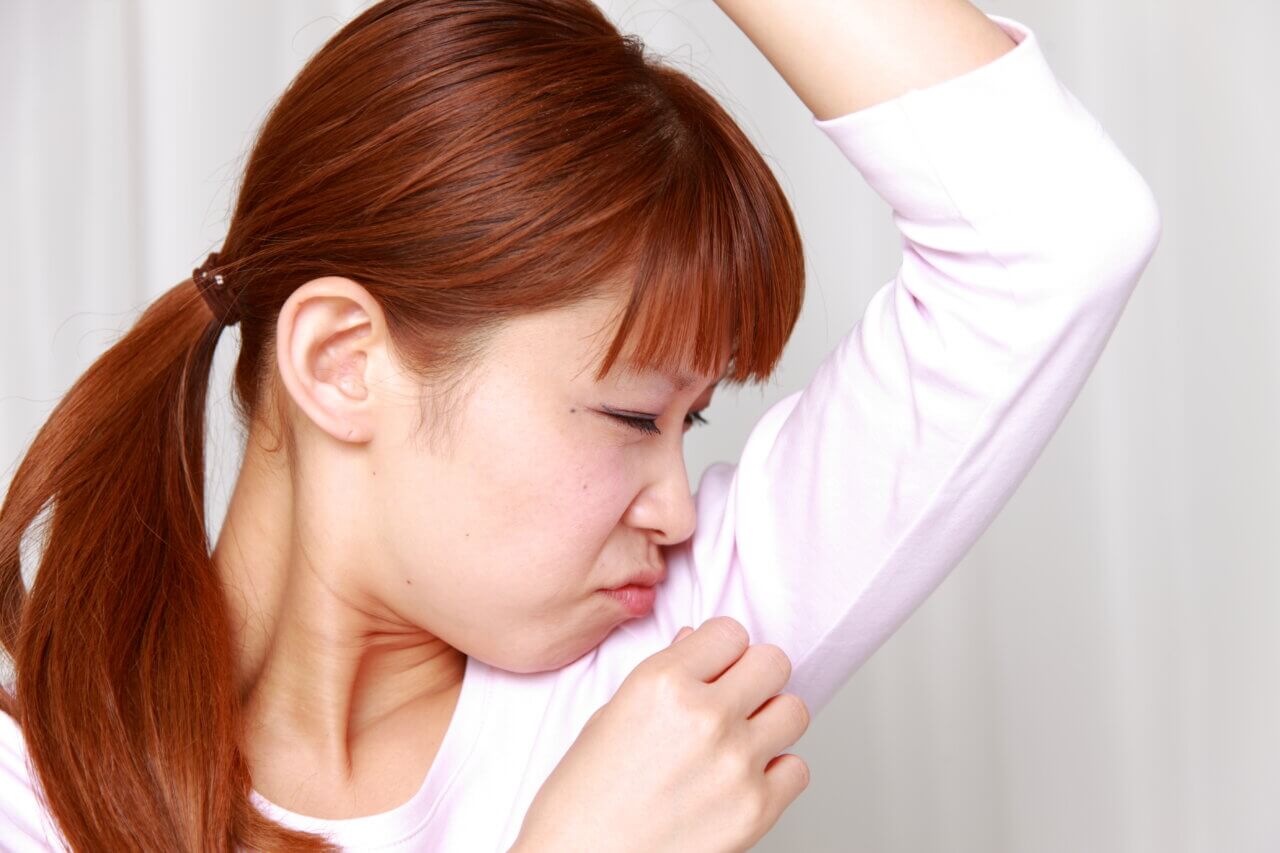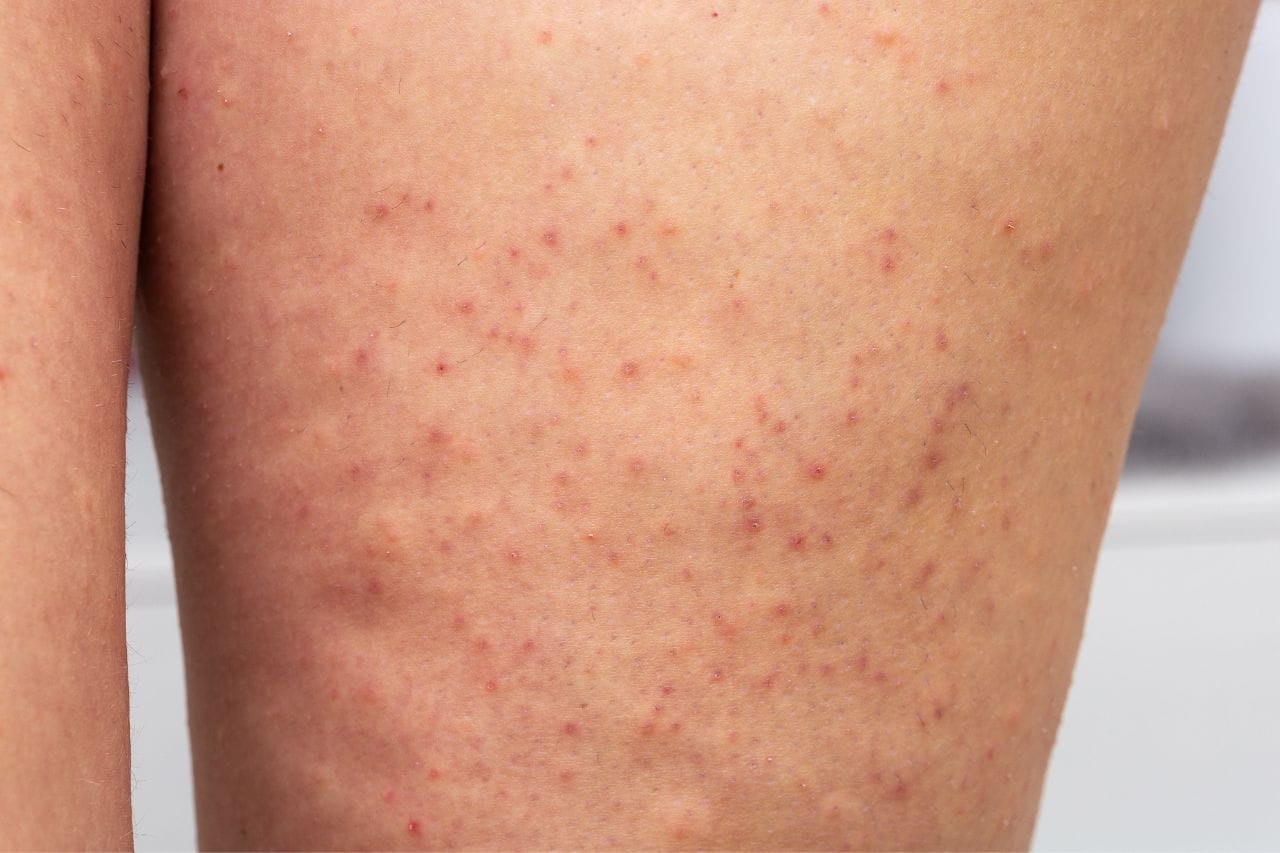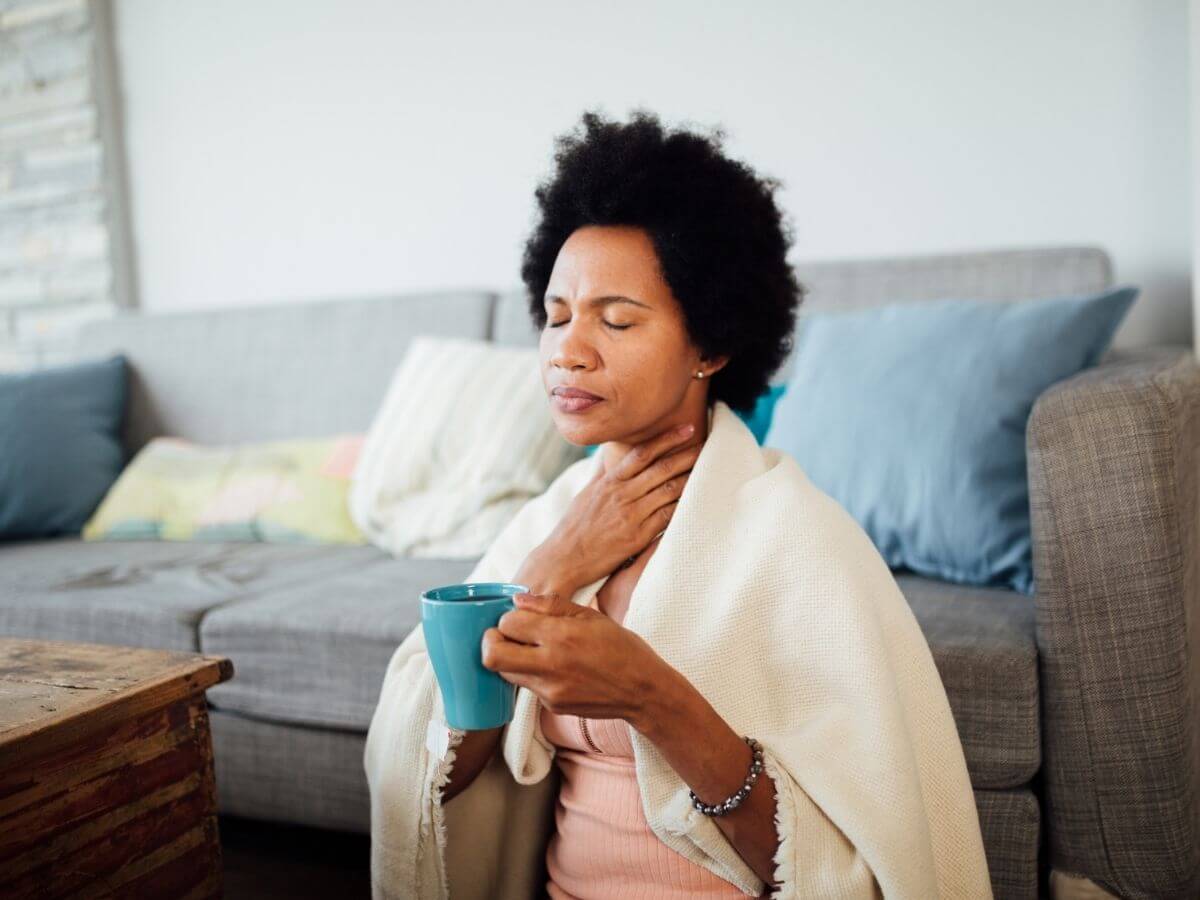What Causes Body Odor?

We’re all familiar with body odor. Everyone produces it. But what causes it, and what can be done to prevent or minimize it? This article provides insights into sweat and body odor.
Sweat + Bacteria = Body Odor
People often associate perspiration with body odor. However, sweat itself doesn’t have a smell. Body odor develops when sweat combines with bacteria on the skin. The result is a smell that can vary from sweet to sour to onion-like.
The amount a person perspires doesn’t directly affect their body odor. Consequently, someone who isn’t noticeably sweating can produce a strong odor, while another person who is drenched in sweat may not have a noticeable smell.
Two Types of Sweat Glands
Your body has two types of sweat glands. Eccrine glands release sweat directly to your skin’s surface. The evaporation of this sweat helps your body cool itself. Eccrine sweat doesn’t produce an odor.
Apocrine glands secrete sweat through hair follicles, which are tube-like structures that contain hairs. Apocrine glands are numerous in your armpits and groin. This type of sweat produces an odor when combined with bacteria.
Apocrine glands don’t start functioning until puberty. That’s why young children don’t have body odor — and why kids reaching puberty may be unaware of or surprised by the odor they’re now producing!
Factors Affecting Body Odor
Several factors can affect body odor, including:
- Genetics
- Activity level
- Diet
- Stress or anxiety
- Being overweight
- Climate
A significant difference in the type or intensity of the body odor you produce may result from changes in these factors. For example, in hot, humid weather, you may produce a stronger odor because you’re sweating more, and the higher humidity means sweat evaporates more slowly.
But a noticeable change can also be due to a health issue. If you have concerns about your body odor, your doctor can determine the cause and prescribe treatment for the underlying condition.
How to Reduce Body Odor
If you choose to reduce your body odor, there are several actions you can take, including:
- Bathe daily with an antibacterial soap
- Use antiperspirant or deodorant
- Keep your armpits shaved to increase sweat evaporation
- Wear clean clothing
- Remove foods like onions, garlic, alcohol, and others that intensify body odor from your diet
- Talk with your doctor about natural odor prevention using topical baking soda, green tea, lemon juice, or apple cider vinegar
- Reduce your stress level to decrease apocrine sweat gland activation
If you sweat excessively, even when you use antiperspirant, you may have a condition called hyperhidrosis. Your doctor can diagnose it and prescribe various treatments, including prescription-strength antiperspirants, injections, and hand-held devices that destroy sweat glands.
Some severe cases may require surgery to remove sweat glands or prevent nerve signals from the brain from activating them.
Talk with Your Baptist Health Doctor About Sweating and Body Odor
If you have questions or concerns about sweating or body odor, don’t hesitate to talk with your doctor. These are common problems for which there are proven solutions.
If you don’t have a Baptist Health physician, you can find one near you in our provider directory.
Next Steps and Useful Resources
Healthy Teenage Lifestyle Tips
How Does Stress Affect the Immune System?



